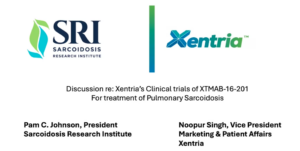Acupuncture is a component of traditional Chinese medicine, originating in China more than 2,500 years ago. Acupuncture practitioners believe there are strategic points connected by meridians that create an energy flow through the body which is responsible for our overall health. If the energy flow is disrupted, it can cause disease. By inserting needles through the skin at those strategic points, acupuncture can rebalance the energy flow which will improve one’s health.
Research suggests that acupuncture may be effective in the relief of low-back, neck, and knee pain; the reduction of tension headaches, and the prevention of migraine headaches; dental pain, nausea and vomiting from chemotherapy, respiratory disorders, allergies, anxiety, depression, hypertension, insomnia, morning sickness, and strokes. It is suggested that the patient’s expectation and beliefs have an impact on the benefits of acupuncture.
During the acupuncture procedure, some patients have described feeling very little pain when the needles are inserted into their skin. Patients have reported the procedure as making them feel energized, and some patients have stated that acupuncture makes them feel relaxed. During treatments other forms of stimulation such as heat, pressure, friction, suction and electromagnetic energy can be used instead of needles.
An acupuncture consultation can last between 60 – 90 minutes, with the treatment lasting approximately 30 minutes. Everyone experiences acupuncture differently, therefore, results will vary from person to person.
Acupuncture is considered safe when performed by an experienced, well trained practitioner. Sterile needles should be used, and if acupuncture is not properly performed serious side effects can result. Acupuncture can be dangerous, and is not recommended if certain medications have been taken; and if the patient has a pacemaker, has a bleeding disorder, is at risk of infection, has chronic skin problems, or is pregnant.
It is recommended that acupuncture be discussed with a primary care physician, and ask if acupuncture might help specific conditions. Patients should not rely on a diagnosis of disease from an acupuncturist. Additionally, the acupuncture practitioner’s license should be verified, and consideration should be given to the costs, and if acupuncture is covered on the patient’s medical insurance plan.
Acupuncture Resources
American Academy of Medical Acupuncture Information
The American Academy of Medical Acupuncture (AAMA) is a professional organization of physicians who have incorporated the evidence-based integration of medicine and acupuncture into their practices. The AAMA website includes information from the National Institutes of Health, National Center for Complementary and Alternative Medicine which provides an overview, theories, and research on the topic of acupuncture. An extensive section on the mechanisms of action provides conditions for which acupuncture might be helpful. Those categories include digestive, emotional, ENT, gynecological, musculoskeletal, neurological, respiratory, addiction, blood pressure and stress reduction.
The AAMA website includes a Consensus Statement on Acupuncture, and articles written by physicians about acupuncture. The website also includes information on acupuncture for depression and anxiety, for cancer, for diabetes, for smoking cessation, for migraine/headaches, and as an alternative to opioids.
